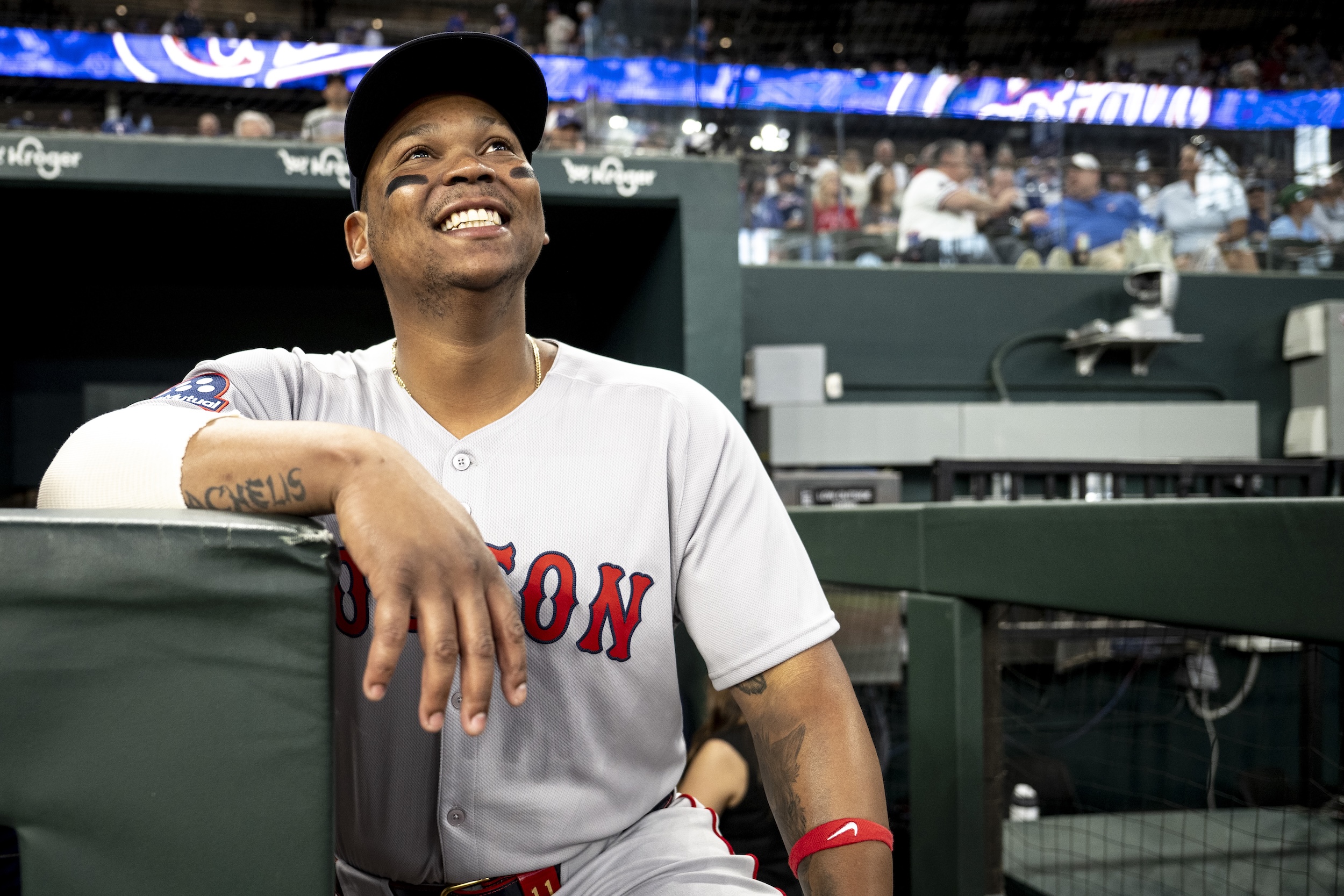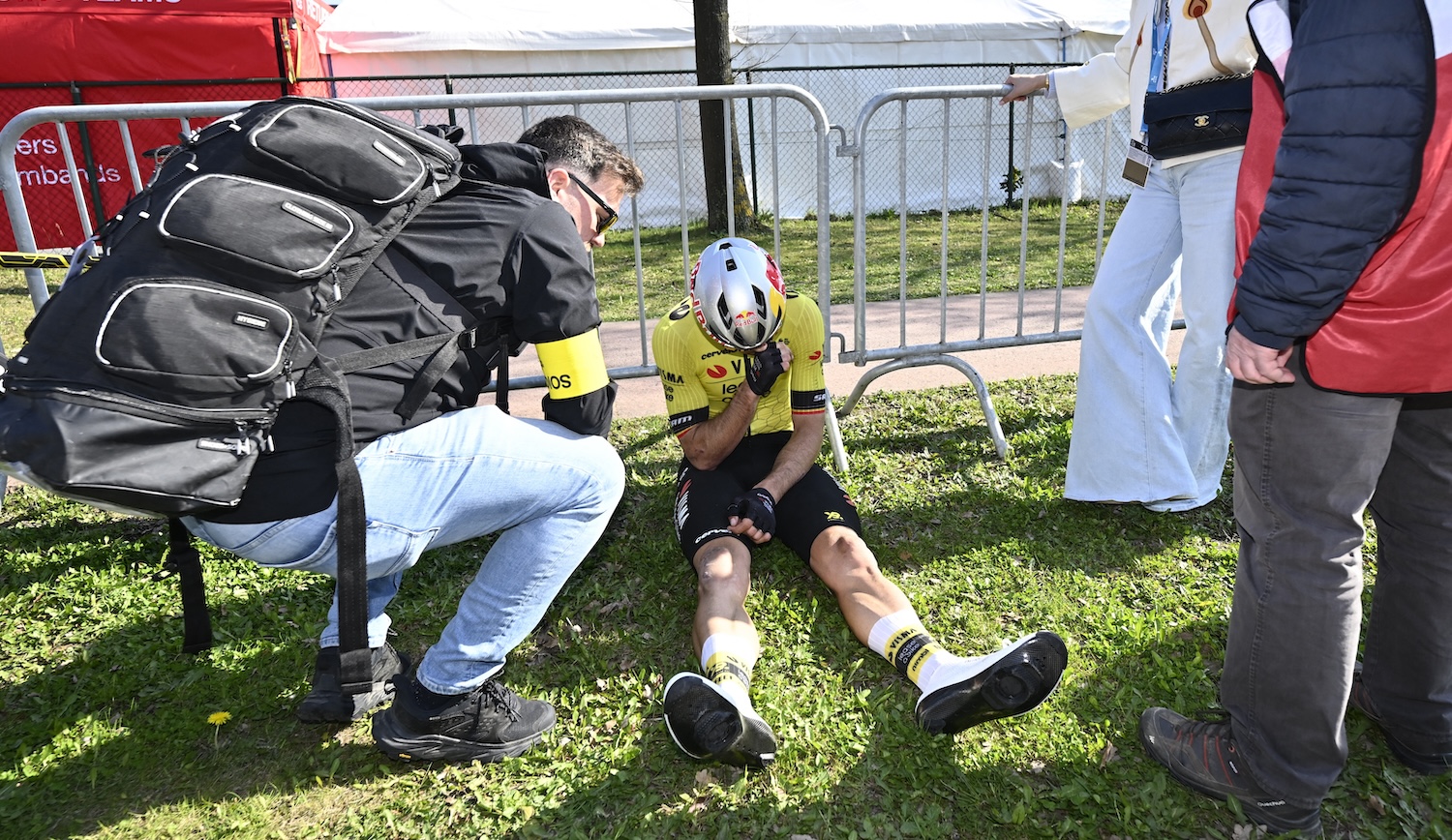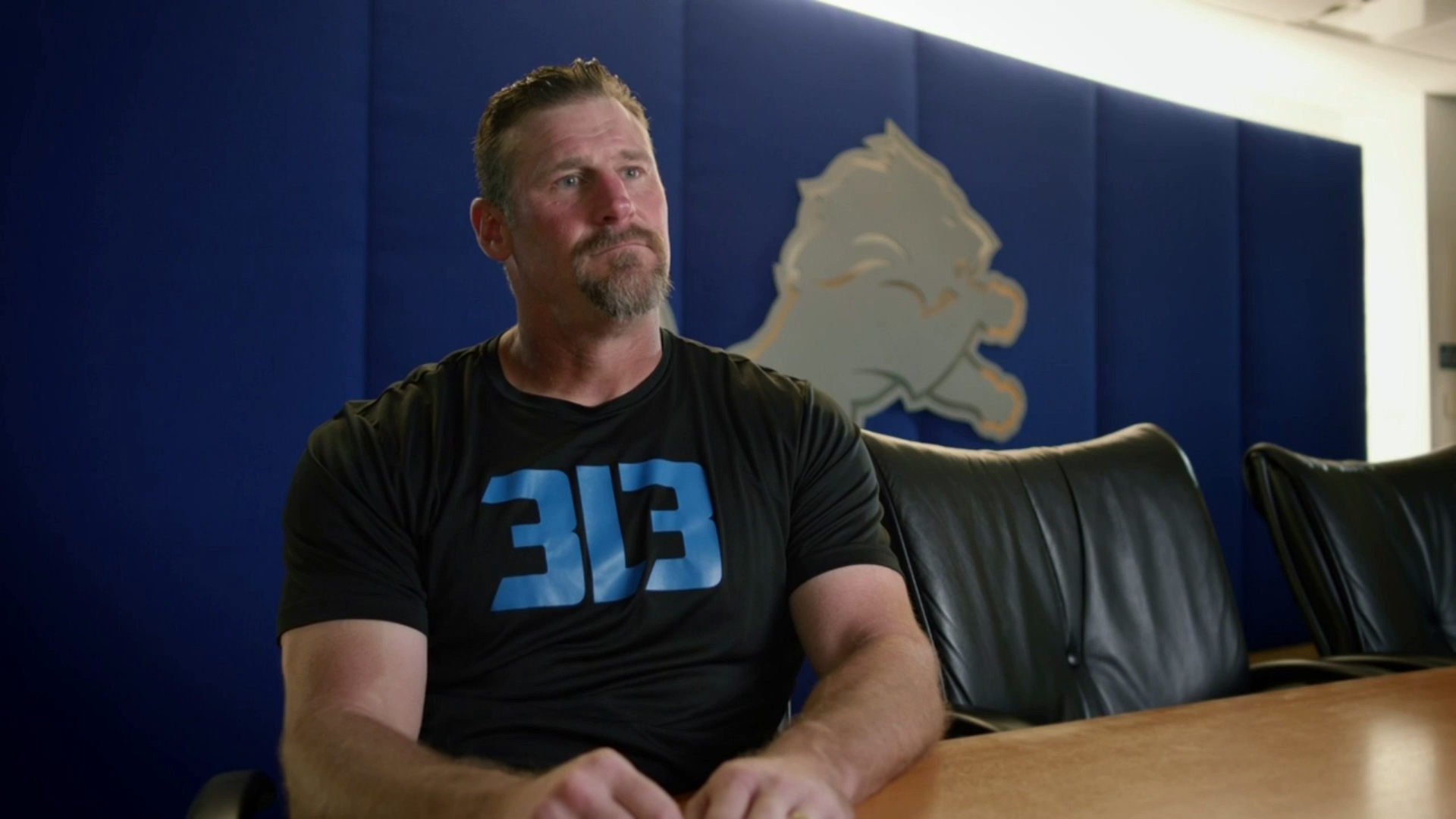Holger Rune seems not to think about strategy.
Writing that a top-15 tennis player is largely ignorant of tactics is a serious suggestion bordering on insult, so know that I don’t say this lightly. Rune is an extremely gifted athlete. Just watch his highlights. Aside from an occasionally dodgy forehand and iffy stamina, there seems to be nothing glaringly wrong in his game. He’s fast—he can get to those heavy backhands down the line with two huge steps and a defensive slide—and he’s completely assured in his movement. He can hit aces, return winners, groundstroke winners off either wing, drop shots, touch shots, and anything else you can think of.
None of this talent helped Rune in the fourth round of Wimbledon on Monday. It took him 13 tries just to win a point against Novak Djokovic. Perhaps this was because Djokovic, at 37, remains a mystifying riddle to solve—despite his recent vulnerabilities, he pummeled the gas out of the ball and harassed Rune’s sketchy forehand. But even before he was matched against Djokovic, Rune's aura withered in the past 12 months. He reached a career-high No. 4 in the world in 2023 but had an atrocious 1-6 stretch in the second half of that season, and he was an anemic 21-13 this year prior to Wimbledon. Rune has plunged to 15th in the world and is yet to take part in any major final, while Carlos Alcaraz has rocketed to three major titles and Jannik Sinner has grabbed one. Rune has been not underwhelming but bad, winning just two games in losses to Fabian Marozsan and Jan-Lennard Struff, players ranked dozens of spots below him.
A losing quarterfinalist at Wimbledon in 2023, Rune watched the Djokovic-Alcaraz final from afar in the second season of Netflix’s Break Point, insisting that in 2024, he’d be in the championship match, not observing it. Dedicating an episode of Break Point to Rune was one of many odd choices the series made. The young Dane lost to Alcaraz at Wimbledon last year, and Alcaraz went on to beat Djokovic in a sensational final, so this is a bit like writing a book about a warrior who gets killed by a more renowned rival, then lies dead as the rival goes on to slay the baddest dragon on the planet. Perhaps Rune’s prominence in the episode was due to him, I’m guessing, being just one of a few players to give Netflix sufficient access to make the kind of show they wanted. But presumably they also thought they had a special player in front of their cameras. Rune was 20 at the time and had beaten Djokovic in a fierce three-set final at the 2022 Paris Masters, then beat him again at Rome in 2023. He has incredible self-confidence, which manifests in audacious shots on big points and laughably ambitious quotes. He has the makings of a star—not a universally beloved golden boy, but a polarizing figure with a cult following who people can also grudgingly admire or love to hate.
Rune is 21 and broke out as a teen. Sophomore slumps aren’t exactly rare—Alcaraz had a bad stretch after winning Wimbledon—but Rune’s lapse in form has felt especially dire. He did his best to reverse his fortunes at this Wimbledon up until his meeting with Djokovic, which was a golden opportunity to make everybody forget about his shitty last 12 months with a single win. Yet Rune crumbled instantly. He played with no apparent game plan, completely failing to expose his opponent’s potentially suspect movement by playing points defensively and doing most of the running himself. Aside from saving a handful of set points late in the second set, Rune was every bit as bad and probably worse than his results from the past year indicate.
Rune is somehow ranked 72nd in the world in the ATP’s return of serve statistics, despite his physical gifts. Unlike Stefanos Tsitsipas, 20 or so spots above Rune in this column, his backhand return isn’t notorious for glitching a few dozen times per match. Rune is balanced in forehand and backhand and has good reflexes—all the makings of a sharp returner. But Rune likes to take ginormous cuts at returns, which can create highlights when accurate but naturally result in frequent misses as well. This is a fixable error, yet Rune (so far) refuses to fix it.
His instincts at the net seem just as flawed. At one point in the third set against Djokovic, Rune was 3-for-14 on net points, as poor a ratio as you’re likely ever to see. Commentator Patrick McEnroe said he didn’t think Rune was a bad volleyer but was making bad choices in his net rushes, not setting himself up for ideal volleys. McEnroe is right: Rune has shown fantastic touch before. But volleying at the net isn’t necessarily about touch. If you come in on shots the opponent barely gets back, you don’t need finesse, just the good sense to thump the ball away into the open court. That’s the Rafael Nadal playbook, and he did all right for himself with 22 major titles. Rune has cramped frequently in the past, and he often rushes the net when under duress to cut a point short, which is fair. But in a straight-set match on a fast grass surface, there should have been no need for that, so I can't rationalize why he followed weak approach shots into the net so relentlessly.
During his Break Point episode, Rune spoke extensively about needing to play his best against Djokovic but talked very little about tactics. That could be down to Netflix chopping all the granular stuff so that casual fans could make sense of the episode, or Rune not wanting to verbalize any valuable strategies to the cameras. But I don’t think so. Another episode sees Tommy Paul talking specific tactics with coach Brad Stine, and Rune’s mother Aneke also mentioned that prior to a big match, Rune goes fully insular, keeping to himself in an almost meditative state to prepare for the stress overdose ahead. I am thankfully not an occupant of a professional tennis player’s brain, but a self-contained binge like that doesn’t sound like it involves much tactical preparation—just positive thinking and nerve management.
Add all that to one of Rune’s strengths—the tremendous confidence that enables him to hit ridiculous shots on huge points—and I think he's convinced himself that he has all the shots he requires and simply needs to play his game successfully to become the best player in the world. He blasts every return because he believes he should make them all and is certain it’s just a matter of time before he starts to. His peak level remains seductively high enough to validate his thinking, each great performance enabling him to dismiss the poor showings that came before. He’s blinded to the idea of hitting his potentially shaky forehand with more safety because he can hit supersonic winners with it.
It’s just a theory, but this thought pattern would reflect his stubbornness in his play style. It's also a recipe for destruction. Players are constantly looking for a leg up on one another; the moment a world No. 1 stops improving is the moment they lose their edge and set in motion their dethroning. Not only is constant game maintenance crucial, but every opponent is different and warrants a fresh game plan. I don’t think Rune factors this into his tennis, at least not nearly as much as he should. Rune has a well-known will-they, won’t-they coaching relationship with Patrick Mouratoglou, who was absent from Rune’s box in this match. Rotating voices in the coaching corner won’t help Rune understand the mistakes he's making. Why else would he step out on the court against a 24-time major champion in Djokovic with no apparent plan whatsoever?
The best-case scenario is that Rune realizes it’s better to play consistently well than occasionally perfect. He’ll add an extra buffer between his shots and the lines, maybe debut a pickle juice-IV treatment to prevent cramping or work on his endurance in the offseason, and better results will follow. It’s also possible that there's no coming back from losing so much over the past 12 months. At 21, Rune has some margin for error. Snap out of this by 23 and it’s all good. But wallow a bit longer than that, and nobody will care how or why the slump began.






